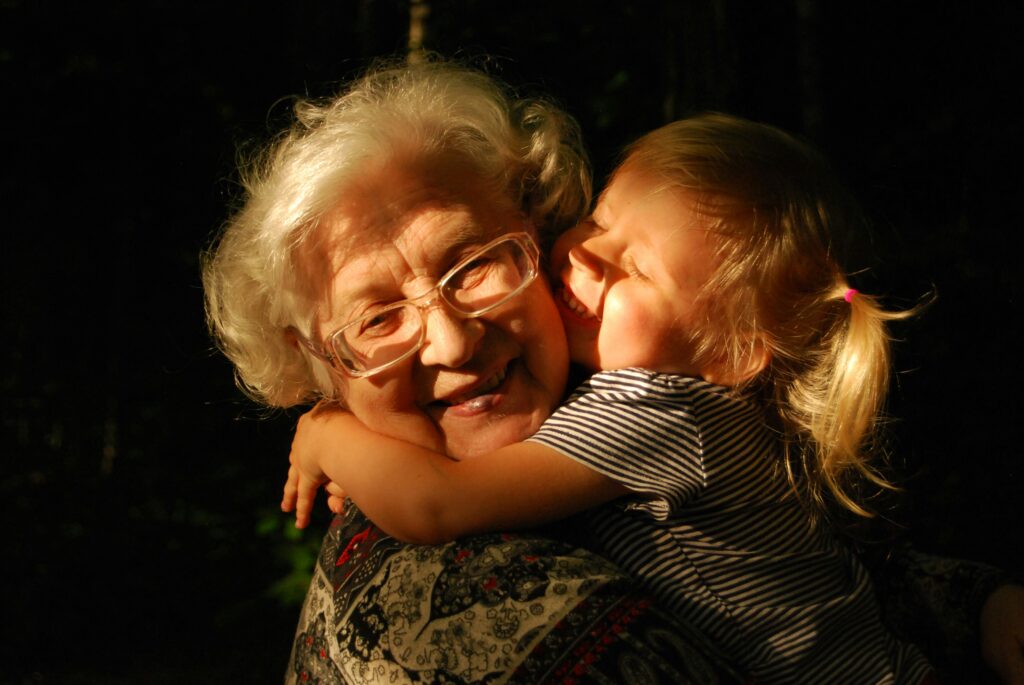Part of Our Ongoing Series Examining Issues of Concern to Older Americans
Grandparents frequently play a critical role in the lives of their grandchildren, offering love, guidance and a unique connection rooted in family history. In some circumstances, however, conflicts — or family dynamics — may strain these relationships. Sometimes this can lead to disputes over visitation rights.

The concept of grandparent visitation rights has increasingly become a topic of legal concern and political action in many jurisdictions. Numerous laws have been enacted which aim to preserve and foster the essential bond between grandparents and their grandchildren. Because family law is primarily governed by state laws rather than federal law, these are typically enacted at the state level.
Let’s take a brief look at grandparent visitation rights. We’ll look at their importance, the factors involved in their recognition, and the potential benefits they offer to all parties involved.
The Significance of Grandparent-Grandchild Relationships
Grandparent-grandchild relationships are often characterized by unconditional love, support and a sense of continuity. These bonds provide grandchildren with emotional stability, identity formation and a connection to their family heritage. Grandparents, in turn, find fulfillment in nurturing and passing down values, traditions and wisdom to future generations. The well-being and development of children can be greatly enhanced by the presence of caring grandparents who contribute to their emotional, social and cognitive growth.
Factors Considered
Recognition and enforcement of grandparent visitation rights vary across jurisdictions, as legal systems strive to balance the interests of grandparents, parents, and the best interests of the child. Several factors influence the consideration of such visitation rights. They are:

1. Parental Rights: In most legal systems, parents have the fundamental right to make decisions regarding their child’s welfare, including determining who has access to the child. Courts generally respect parents’ autonomy, recognizing that they have the primary responsibility for their children’s upbringing.
2. Child’s Best Interest: Courts prioritize the best interests of the child when assessing grandparent visitation rights. Factors such as the child’s age, emotional and physical well-being, the nature of the grandparent-grandchild relationship, and the potential impact of visitation on the child’s overall development are taken into account.
3. Relationship with Grandparents: The strength and quality of the relationship between the grandparent and grandchild also influence the recognition of visitation rights. Courts may consider the history of the relationship, the frequency and duration of prior contact, and the potential benefits or harm to the child resulting from continued or restricted contact with the grandparent.

Benefits of Grandparent Visitation Rights
Recognizing and facilitating grandparent visitation rights can yield significant benefits for all parties involved:
1. Emotional Support: Maintaining a relationship with grandparents can provide children with an additional source of emotional support, stability and love. Particularly in cases involving divorce, separation, or loss, the presence of grandparents can help children navigate challenging emotions and foster resilience.
2. Family Stability: Grandparent visitation rights can contribute to family stability by promoting continuity and connection. By preserving family ties, children develop a stronger sense of identity and belonging, which positively impacts their overall well-being.
3. Intergenerational Bonding: Grandparent-grandchild relationships foster intergenerational bonding, allowing children to learn from their elders, gain wisdom and appreciate family values and traditions. This exchange of knowledge and experiences benefits both parties, contributing to a richer family environment.
4. Safeguarding Vulnerable Children: Grandparents can play a critical role in safeguarding the well-being of their grandchildren. In situations where children face neglect, abuse or other adverse circumstances, allowing grandparents visitation rights can provide an additional layer of protection and support.
* * * * * * * * * * * * * * * * * * * * * * * *
So there you have it. Grandparent visitation rights serve to preserve and nurture the unique bond between grandparents and their grandchildren, contributing to the emotional well-being and development of children. By doing so, they foster family stability, emotional support, intergenerational bonding and the protection of vulnerable children. Recognizing and upholding grandparent visitation rights ensures that the invaluable contributions of grandparents are valued and cherished, creating a stronger foundation for future generations.
By Steven Roberts



